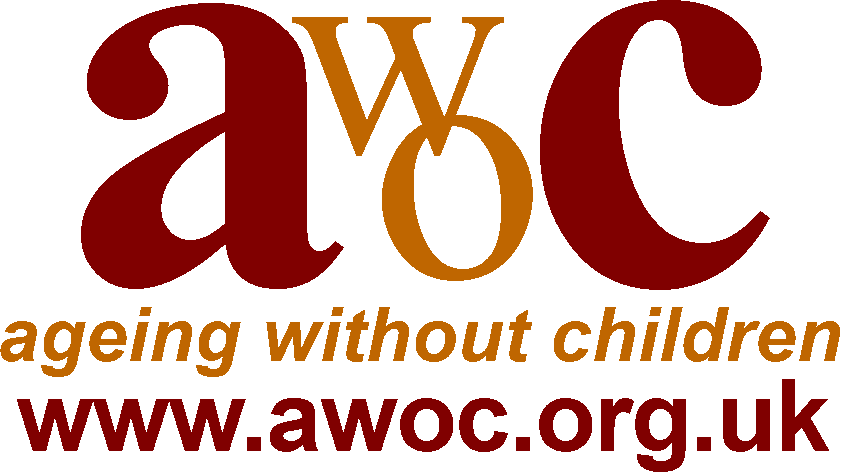History of AWOC
Ageing Without Children (AWOC) was set up as a community interest company in the UK in 2015 following an article written by founder Kirsty Woodard in The Guardian.
A small group including Kirsty, Jody Day founder of Gateway Women, Dr Robin Hadley and Dr Mervyn Eastman came together to raise awareness of the issues affecting people ageing without children and a conference was held in London 2014 attended by over 100 participants.
In 2016 with the support of funding from the Beth Johnson Foundation AWOC published a report highlighting the experiences of people ageing without children, Our Voices, and was also successful in obtaining a development grant of £25K from the Big Lottery. A second conference held in Birmingham in 2016 focused on one of our core issues – planning for later life.
In 2018 bids were submitted to Big Lottery Fund, NESTA, and the Tudor Trust in partnership with Age UK London and Transform Ageing, a programme aiming to support people in later life through social entrepreneurship. A small grant of £15K enabled AWOC to develop its work in the South West of England.
In 2019 having not succeeded with any further funding bids with which to continue our work, the Board reluctantly decided that AWOC was not sustainable and we passed on our existing assets to The PRAMA Foundation who were willing to keep the issue alive on our behalf and host our website.
In 2020 the onset of the Covid pandemic and accompanying lockdowns magnified existing health and care inequalities including the specific challenges faced by many older people ageing without family support particularly those living alone and the residents of care homes. AWOC conducted two surveys – one national and one local (in York) which revealed how marginalised, invisible and fearful some people felt and the strategies they adopted to cope with social isolation.
Former AWOC colleagues felt the time was right to come together and apply to the Charity Commission for registration as a Charitable Incorporated Organisation in 2021. Since then we have made further efforts to apply for funding and continued to run local groups, deliver presentations, hold webinars, write articles and campaign on the issue.
